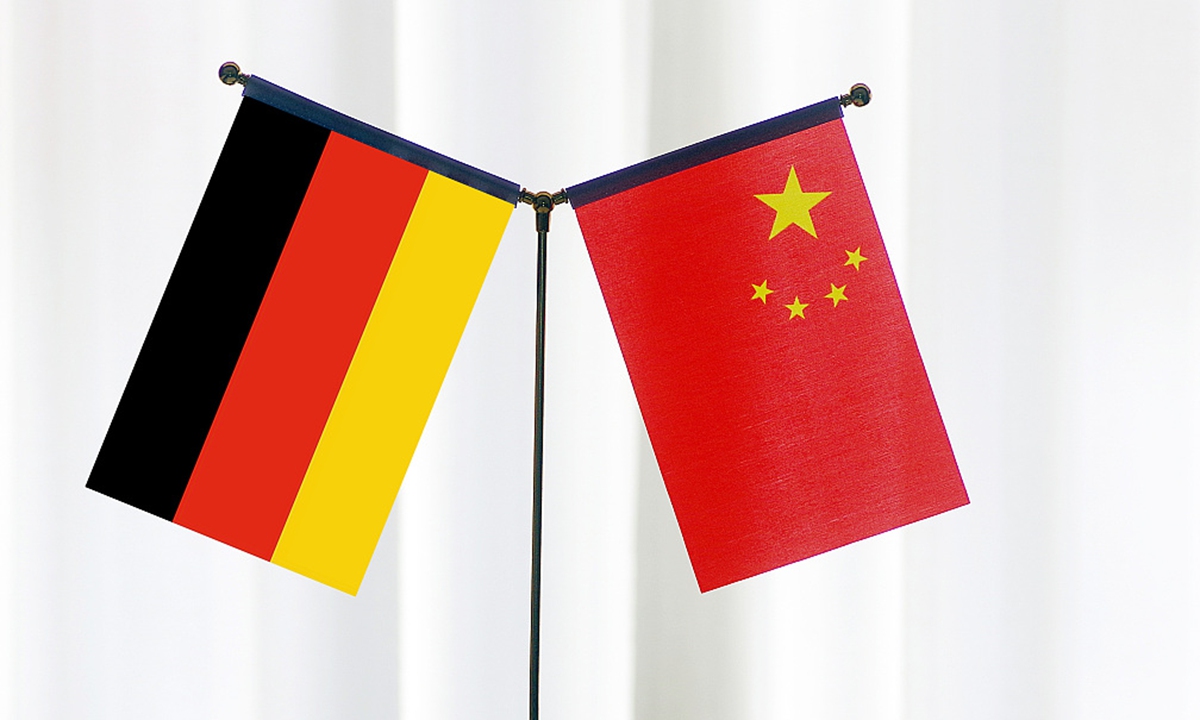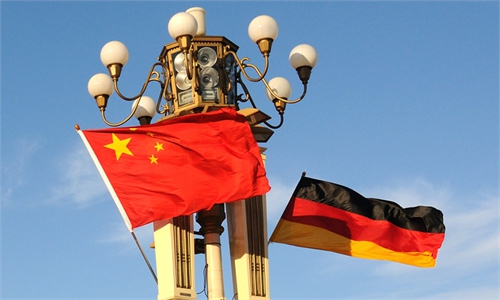Ideological snipers aim at Scholz even before he leaves for China: Global Times editorial

Photo:VCG
Ever since German Chancellor Olaf Scholz announced that he will visit China in November, there have been endless discussions in public opinion in Germany and the West. Scholz will be the first EU leader to visit China in more than three years if the visit takes place.In an interview with the German media, Scholz said that going to Beijing is very important to him, and that no one wants to "decouple" from China at the EU summit. This is an objective statement of fact as well as a pragmatic attitude toward China.
This year marks the 50th anniversary of the establishment of diplomatic relations between China and Germany. The achievements the two countries have made in the past 50 years are phenomenal. The Volkswagen Santana cars were almost one of the iconic projects of China's reform and opening-up in the 1980s and 1990s. By 2021, Beijing has been Berlin's largest trading partner for six consecutive years. It is normal for Scholz to choose a monumental day to keep his country's friendly relations with its largest trading partner going on through a visit.
However, while Scholz himself and the German business community have repeatedly expressed high expectations from the China visit, some radical forces have been picking fault with Scholz's trip from the very beginning. They threatened Scholz not to "bend over" to China and even intimidated German companies that had accepted Scholz's invitation to visit their Chinese counterparts. To some extent, Scholz's planned visit has become a target for these ideological snipers.
A Chinese company's acquisition of shares of a container terminal in the Port of Hamburg is the latest material these forces have found. The Port of Hamburg is the largest in Germany, and it had been hoping to attract investment for a long time, but no one had shown interest in it. It was Chinese shipping company COSCO that offered an olive branch to the port. And although COSCO only acquired a small amount of stake in one of the port's four container terminals, some forces have made a big deal out of it, claiming that the project would deepen Germany's "economic dependence" on China and threaten the security of Germany's commercially sensitive information. The most absurd claim is that China will use the Port of Hamburg to complete its "encirclement" of the European coastline, which could be used by China to "blackmail the EU" if a "war" between China and the US begins.
Anyone with some basic knowledge of water transportation and logistics knows that an international port often has multiple terminals and the Chinese enterprise's acquisition of a minority stake in one of the thermals, which is equivalent to renting a store in a large shopping mall, cannot impact the ownership of the entire port anyhow. The imports and exports of Chinese and German commodities rely on the Port of Hamburg, which is a good thing for both the local region and Germany as a whole. Local officials in Hamburg scoffed at those who lack basic common sense, calling them "self-appointed port experts." This is a befitting title. Not only that, they become "communication experts" when it comes to the Huawei equipment, and they turn into "labor experts" when it comes to the Xinjiang cotton. They seem to know everything, but in fact, they are only good at manipulating ideology.
No matter what kind of prejudice and malice these people harbor toward China, their actions are actually creating trouble for Scholz and digging Germany and Europe into a hole. The Russia-Ukraine conflict has exacerbated the predicament facing Europe, and some external forces have taken the opportunity to distort the narrative and stigmatize links with China as "dangerous" or even "a threat." For this kind of fraudulence, Europeans, including Germans, need to fight it and be vigilant of being fooled. Let's think it in another logic: If Europe weakens or even cuts off its ties with China, can it really be more "independent" and "secure?" And who is the most impatient one, waiting to eat the cake left by the "decoupling" between China and Europe?
For US and Western politicians, it is easy to unilaterally stage a show of "being tough on China." They only need to shout into the microphone. What is difficult to do is promote pragmatic cooperation and truly improve the well-being of the general public. The latter is worthy of being recorded and written into history. When the Berlin Wall fell in 1990, China accounted for less than 1 percent of Germany's trade volume. By 2021, this figure has risen to 9.5 percent. What has driven China-Germany relations forward are not only the intertwining interests, but also profound insight into the trend of the times. China and Germany joining hands to support economic globalization and multilateralism and making the bilateral relations continue to play a stable, constructive and leading role will not only benefit the two peoples, but also make important contributions to world peace and tranquility.
Among those absurd remarks over Scholz's visit to China, the most arrogant argument is that Germany is throwing a life-saving buoy to China's diplomacy. Arrogance is the twin brother of inferiority. The sense of superiority of these people is crumbling, but occasionally it has an outburst.
This is what we want to say: By adhering to economic globalization and practicing multilateralism, the big ship of China has always sailed on the right side of the historical trend. As for the life-saving buoy, leave it to those sailing against the currents; we simply don't need it.

